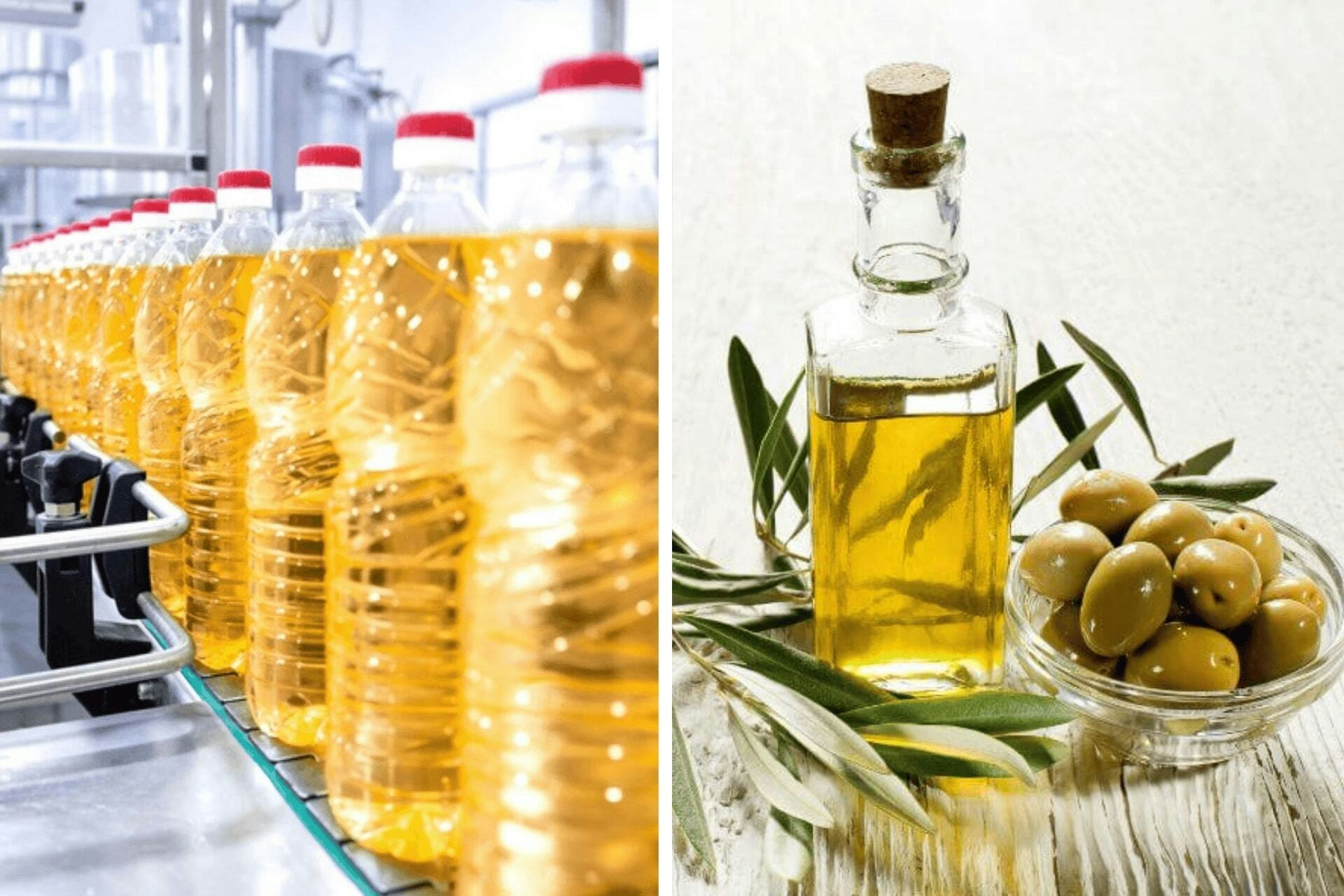When you’re cooking something like a juicy steak or crispy stir-fry, you need your pan to get really hot. That’s called high heat cooking, and it helps give the meat a nice golden sear and locks in flavor. But not all cooking oils can handle that kind of heat.
Some oils start to smoke or break down when the temperature gets too high, leaving behind a burnt, bitter taste, and even creating harmful compounds. That’s where a high-temperature cooking oil comes in.
In this guide, we’ll break down everything you need to know about high heat cooking and which oils are best for this purpose. Whether you're searing meat, roasting veggies, or stir-frying, you’ll walk away knowing exactly which oils to reach for.
What are High Heat Oils?
High heat oils are cooking oils that can handle very hot temperatures — usually around 400°F (204°C) or higher — without burning, smoking, or breaking down. These oils are perfect for high heat cooking methods like searing steak, stir-frying vegetables, roasting in the oven, or grilling.
Each oil has a smoke point, which is the temperature at which it starts to burn and produce smoke. When oil hits this point, it can break down and release harmful compounds like acrolein (which gives off a burnt smell) and free radicals ❶.
That’s why using a high temp cooking oil with a high smoke point is important — it stays stable, keeps your food tasting great, and helps you get that perfect golden crust without any bitter flavor or unwanted toxins.
The Best Cooking Oils for High Heat
Now that you know why high heat oils matter, let’s take a closer look at some of the best options for searing, stir-frying, roasting, and grilling. Each of these oils has a high smoke point, which makes them suitable for temperatures around 400°F (204°C) or higher.
Algae cooking oil
Algae cooking oil is a standout high heat option with an impressive smoke point of around 535°F (279°C). Made from microalgae, it offers a clean, neutral flavor that works well in a variety of recipes. What makes it unique is its high stability and monounsaturated fat content, which includes 25% more heart-healthy omega-9s and 75% less saturated fat than both olive and avocado oils.
This makes it a great choice for those looking to support heart health. It’s also non-GMO and sustainably produced, which adds to its appeal for health-conscious cooks.
Related: Benefits of Algae Cooking Oil
Safflower oil
Safflower oil has a high smoke point of about 510°F (266°C), making it a strong performer for high-heat cooking like searing, frying, and roasting. It has a very mild flavor and is high in heart-healthy monounsaturated fats. However, it also contains a significant amount of omega-6 fatty acids, which some people choose to limit in their diet to support a better inflammatory balance.
Refined avocado oil
Refined avocado oil is extracted from the flesh of the avocado and boasts a smoke point between 480–520°F (249–271°C), making it one of the most stable oils for cooking at high temperatures. It has a subtle, buttery taste and is rich in monounsaturated fats and antioxidants.
Because of its high stability and minimal processing, it's a popular choice for those seeking a cleaner, versatile cooking oil. Just keep in mind that unrefined avocado oil has a lower smoke point.
Related: Avocado Oil Substitutes
Soybean oil
Soybean oil has a smoke point of around 437–455°F (225–235°C) and is commonly used in home and commercial kitchens thanks to its affordability and versatility. It contains omega-3 fatty acids but is also high in omega-6s and often comes from genetically modified crops. If you choose soybean oil, opting for organic or non-GMO versions and using it in moderation can help maintain a more balanced intake of fats.
Refined sunflower oil
Refined sunflower oil has a smoke point of about 450°F (232°C), making it another high temp oil. It has a light flavor and is rich in vitamin E, an antioxidant that supports skin health. Sunflower oil also contains a mix of monounsaturated and polyunsaturated fats, depending on the variety.
While it's a versatile oil, it’s important to look for high oleic sunflower oil, as it contains more stable monounsaturated fats than regular sunflower oil.
Related: Sunflower Oil Substitutes
Canola oil
Canola oil, with a smoke point of 428-446°F (220-230°C), is a popular choice for high-heat cooking due to its mild flavor and cost-effectiveness. This oil is commonly found in both residential and commercial kitchens, and often used for frying, sautéing, baking, and even searing steak. Due to its stability at high temperatures, it’s a reliable option for achieving a perfect sear.
Related: Canola Oil Substitutes
Grapeseed oil
Grapeseed oil, with a smoke point of about 421°F (216°C), is an excellent choice for high-heat cooking, especially when searing or sautéing meat. Extracted from grape seeds, it has a light, neutral flavor that lets the natural taste of the meat shine through.
Rich in vitamin E and polyunsaturated fats, grapeseed oil helps achieve a crisp, golden crust when cooking meats like steak or chicken.
Related: Grapeseed Oil Substitutes
High Heat Cooking Oil Chart
Here's a helpful chart to compare the smoke points and key characteristics of the oils we've discussed. This will guide you in selecting the best high heat cooking oil based on your needs.
| Cooking Oil | Main Type of Fat | Smoke Point | Key Characteristics |
| Algae cooking oil | Monounsaturated fats | 535°F (279°C) | High stability, neutral taste, contains more heart-healthy omega-9s, 75% less saturated fat than olive & avocado oils.
Non-GMO and sustainably produced. |
| Safflower oil | Polyunsaturated fats | 510°F (266°C) | Mild flavor, high in monounsaturated fats, may have a high omega-6 content. |
| Refined avocado oil | Monounsaturated fats | 480–520°F (249–271°C) | Subtle, buttery flavor, rich in monounsaturated fats and antioxidants, stable for high heat. |
| Soybean oil | Polyunsaturated fats | 437–455°F (225–235°C) | Affordable, versatile, and often used in commercial kitchens. |
| Refined sunflower oil | Polyunsaturated fats | 450°F (232°C) | Light flavor, rich in vitamin E, and supports skin health. Look for high oleic sunflower oil for more stable fats. |
| Canola oil | Monounsaturated fats | 428–446°F (220–230°C) | Mild flavor, cost-effective, popular for frying, sautéing, and searing steak. |
| Grapeseed oil | Polyunsaturated fats | 421°F (216°C) | Light, neutral flavor, great for searing and sautéing meat, rich in vitamin E. |





